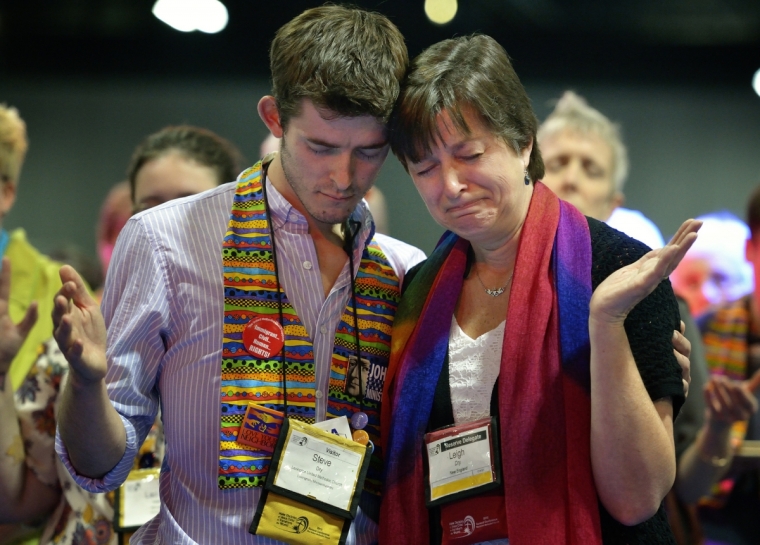'Inclusive' group calls for openly gay Methodist bishops

CHICAGO (Christian Examiner) – A group of Methodists dedicated to advancing the cause of inclusiveness for members of the lesbian, gay, bisexual and transgender community in their denomination is encouraging the election of three openly gay bishops to help lead the church.
The group, Reconciling Ministries Network (RMN), claims that the time is right for the election of the bishops following the denomination's 2016 General Conference. At the gathering in traditionally liberal Portland, Ore., in May, Methodists voted to table several pieces of legislation that would have changed the denomination's stance on homosexuality.
However, the door was left open to further dialogue when Methodists voted narrowly (428-405) to establish a special commission to study the inclusion of members of the LGBT community as ordained priests and to recommend whether or not the church should bless same-sex marriages.
Homosexual activists have a long history of trying to overturn scriptural teachings on homosexuality in the denomination, but since 1972 church doctrine has regarded homosexuality as "incompatible with Christian teaching."
We believe the new creation has begun?—?it's time for The United Methodist Church to move boldly forward into the future and elect its first openly gay bishops to the glory of God and for the unfolding of a new future together.
Now, RMN's Executive Director Matt Berryman claims "the Spirit of God is now raising up three openly gay candidates for the office of bishop for election at the meetings of the Western and North Central Jurisdictions in just a few weeks."
Berryman said the three ministers – Rev. Dr. Karen Oliveto, Rev. Frank Wulf, and Rev. David Meredith – have been courageous in sharing their vision for full inclusion "for years as preachers of the gospel."
"The vote to establish a commission to examine and offer revision to anti-LGBTQ policy united a majority of delegates around the common desire to end discrimination and division. The vote, an expression of the Spirit's leading, inaugurates a new moment in the life of The United Methodist Church that continues to grow and grow as Annual Conferences around the US resolve to ordain openly LGBTQ clergy, to affirm the image of God in our transgender siblings, and to publicly declare an unwillingness to conform with all aspects of anti-LGBTQ policy," Berryman writes.
According to Berryman and RMN, members of the LGBT community have been marginalized for decades and the three ministers who will be nominated as bishop have been ministering to marginalized "as gay preachers of the gospel."
"They know what it means to follow Jesus into futures yet unknown and what it means to live in the promise and hope of a new creation whose reality is an unfolding dream. They have comforted the poor, the afflicted, and those in need while challenging the powerful and the privileged to grow more deeply into the full stature of Christ," Berryman writes.
He adds that the church will demonstrate true discipleship if it begins the work of restoring and reconciling by electing what he called "qualified" leaders.
"We believe the new creation has begun?—?it's time for The United Methodist Church to move boldly forward into the future and elect its first openly gay bishops to the glory of God and for the unfolding of a new future together," Berryman writes.
At the General Conference, discussion turned to a possible special assembly to debate how the denomination could be divided among pro-gay and biblical Methodists. But the denomination may unravel long before any such meeting occurs. Several regional conferences are already rebelling.
Despite the fact their moves do nothing to change national policy and church doctrine, the Desert Southwest Conference and California-Pacific Conference decided last week to askew any discussion of sexual orientation or traditional doctrine when ordaining ministers.
That decision came after the New England Conference voted "not to conform or comply with the provisions of the (Book of) Discipline which discriminate against LGBTQIA [lesbian, gay, bisexual, transgender, queer, intersex and asexual] persons."